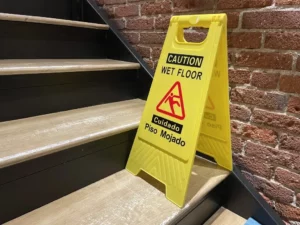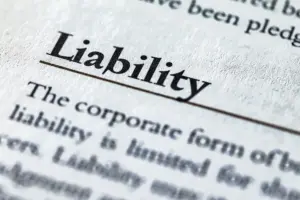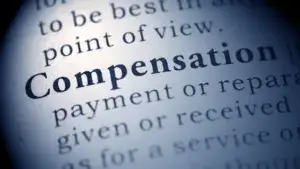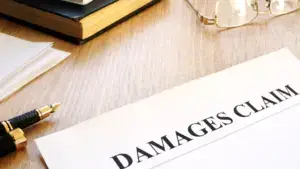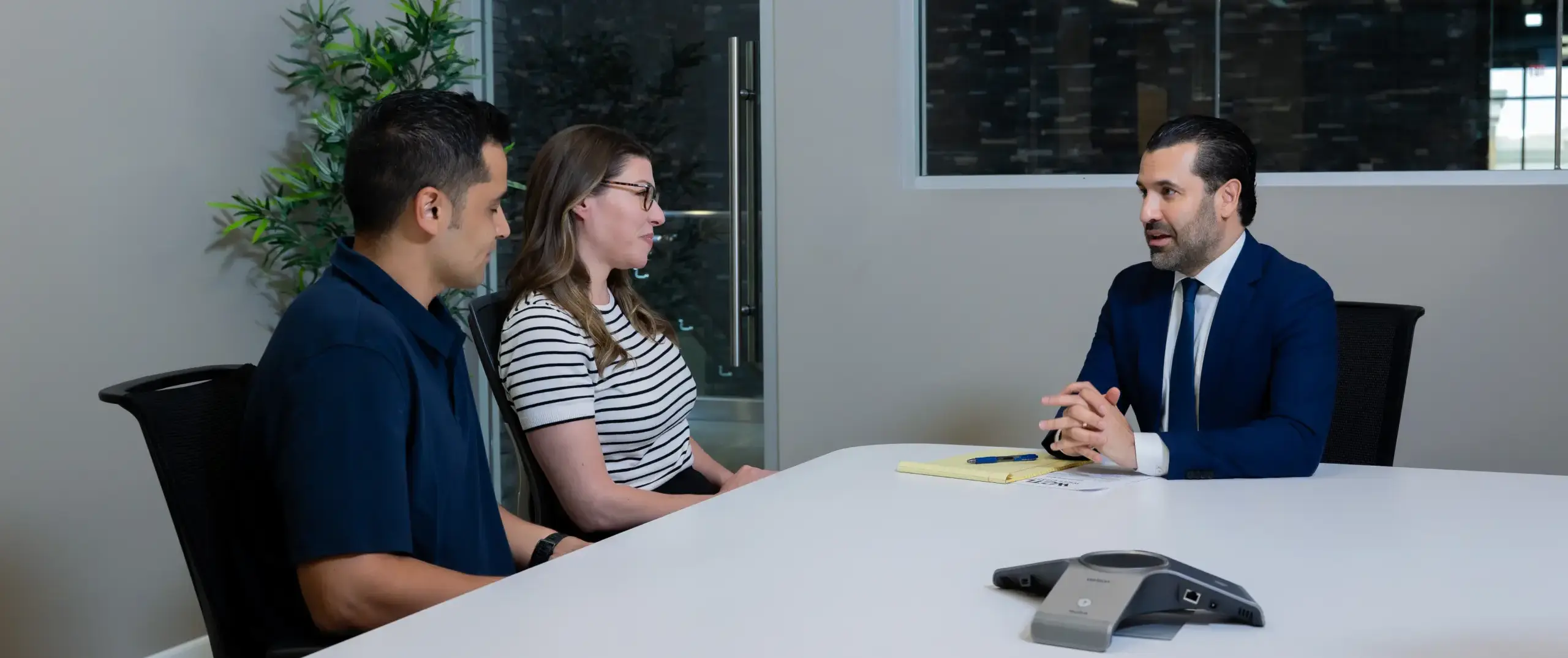A traumatic brain injury (TBI) can be one of the most devastating outcomes of an accident. These injuries not only affect a person’s physical health but also alter cognitive functions, emotions, relationships, and quality of life. If you or a loved one has suffered a brain injury in Los Angeles due to someone else’s negligence, you don’t have to face the legal and financial aftermath alone.
At West Coast Trial Lawyers, we understand the long-term impact of head trauma. With over 20 years of experience handling complex personal injury claims in Los Angeles County, we are committed to fighting for justice, holding negligent parties accountable, and securing the compensation our clients deserve. Whether the injury occurred in a car accident on the 405, a fall on unsafe property in Downtown LA, or a violent assault in Hollywood, we are prepared to pursue your case aggressively.
We operate on a contingency fee basis, meaning you do not pay anything until you win! Call us today at (213) 927-3700 or completing our quick online contact form for a free consultation!
Common Causes of Brain Injuries
Los Angeles is a fast-paced, high-traffic city with over 3.8 million residents and countless commuters. With constant congestion on freeways, frequent construction projects, bustling pedestrian zones, and dense nightlife, the risk of suffering a traumatic brain injury (TBI) is especially high. Brain injuries often result from preventable accidents, many of which are rooted in negligence. Here are the most common causes of brain injuries in the Los Angeles area.
Motor Vehicle Accidents
Car crashes are without a doubt among the leading causes of traumatic brain injuries in LA County. With the 405, 101, 10, and 110 freeways consistently ranking among the busiest in the country, it’s no surprise that high-speed and rear-end collisions are frequent and often serious.
According to the California Office of Traffic Safety, Los Angeles county consistently has the highest number of traffic injuries in the state, including those involving pedestrians, cyclists, and motorcyclists. However, head trauma incidents are especially common in motorcycle accidents on Mulholland Drive, pedestrian accidents in Downtown LA, and T-bone collisions on Wilshire Blvd or Sunset Blvd.
Slip and Fall Accidents
Slip and falls are particularly dangerous for seniors and can easily cause concussions or more severe brain trauma. In Los Angeles, they often occur in places like grocery stores, shopping centers (like The Grove or Westfield Century City), or restaurants with wet or uneven floors. However, they can even occur in older apartment buildings in areas like Koreatown or Hollywood, where maintenance issues are more common.
According to the California Department of Public Health, falls account for over 37% of all brain injury-related hospitalizations. In adults aged 55 and older, especially in LA’s aging population, they are the leading cause of TBI-related death.
Sports-Related Brain Injuries
Los Angeles is a sports powerhouse, with local athletes participating in youth leagues, high school football, skateboarding, and extreme sports throughout the city. In fact, concussions are common among student athletes at LAUSD high schools and at local colleges like USC and UCLA. Even skate parks in Venice, Downtown LA, and Boyle Heights report frequent head injuries from falls and collisions. If concussions are not properly treated then it could lead to more severe medical conditions that can ultimately be fatal or drastically impact your quality of life.
Violent Assaults and Gun-Related Incidents
Unfortunately, Los Angeles also experiences a higher-than-average rate of assaults compared to many U.S. cities, particularly in densely populated or nightlife-heavy areas. Brain injuries can result from domestic violence, bar fights, or assaults in areas like Hollywood, South LA, or Skid Row.
According to the Los Angeles Police Department (LAPD), there were over 27,000 violent crimes reported in the city in 2023, and a significant number of these involved physical assaults that may result in brain injury.
By understanding these specific risk factors, you can better appreciate how and why brain injuries occur and how crucial it is to seek both immediate medical attention and legal representation after any head trauma.
Brain Injury Symptoms
Traumatic brain injuries (TBI) have a wide range of symptoms, including physical, psychological, and emotional effects. While the symptoms will depend on the severity of the accident, it’s critical to recognize these signs early, especially after any accident or head trauma, so that medical attention can be sought immediately.
Physical Symptoms
- Headaches or migraines
- Dizziness or balance problems
- Nausea or vomiting
- Fatigue or drowsiness
- Loss of consciousness (even briefly)
- Blurred vision, ringing in ears, or sensitivity to light
Cognitive Symptoms
- Memory loss
- Difficulty concentrating or following instructions
- Confusion or disorientation
- Slurred speech
- Difficulty processing information
Emotional or Behavioral Symptoms
- Mood swings
- Irritability
- Depression or anxiety
- Sleep disturbances
- Unusual aggression or impulsivity
If you or someone you love shows any of these signs after an accident, seek emergency medical care and then contact an experienced brain injury attorney in Los Angeles to discuss your legal options.
What Not to Do After a Suffering a Head Injury
After a potential brain injury, it’s just as important to know what not to do as it is to know what actions to take. Missteps during this critical time can delay recovery or damage your chances of receiving compensation. With that in mind, it is crucial to avoid the following mistakes:
- Do Not Delay Medical Treatment– Even if symptoms seem minor, TBIs can worsen over time. Some injuries may not show immediate symptoms but can be life-threatening if untreated.
- Do Not Talk to Insurance Adjusters Without Legal Representation– Insurance companies may try to minimize your injuries or offer a lowball settlement. Avoid giving recorded statements or signing anything until you consult with a brain injury lawyer.
- Do Not Downplay Your Symptoms– Always communicate all symptoms to your doctor. Your medical records will be crucial in proving the extent of your injury.
- Do Not Post on Social Media– Insurance defense attorneys may monitor your social media for posts that could contradict your injury claim.
- Do Not Miss Doctor’s Appointments– Skipping treatment can be used as evidence that your injuries aren’t serious or that you’ve recovered—hurting your case.
By avoiding these mistakes and working with a skilled Los Angeles brain injury attorney, you’ll be guided through every step of the legal process and protected from making mistakes that could jeopardize your case.
How Liability for Brain Injury Claims Works in Los Angeles County
One of the most important responsibilities your Los Angeles brain injury attorney will have is establishing liability. For many brain injury victims, proving that someone else’s negligence or misconduct was the cause of your injuries may be the only way to secure the compensation that is rightfully yours.
Your attorney will need to closely evaluate the type of accident you were involved in to determine who is responsible for causing your brain injury. For example, if you were involved in a car accident, your attorney would look to the driver who caused the accident and any third parties like negligent mechanics, dealerships, or car part manufacturers. You can expect your brain injury lawyer to conduct an in-depth analysis of your accident to ensure that all liable parties are held accountable to the fullest extent of the law.
California Comparative Negligence Laws
Many people who have suffered critical brain injuries may be hesitant to reach out to a lawyer for help, because they may be partially at fault for causing the accident. However, accident victims can still recover compensation even if they are partially responsible for the accident. Under California’s Comparative Negligence laws, when you share fault for your injuries or the accident, you can still recover compensation for your damages, but they will be reduced to account for your percentage of liability.
For example, if you were found 25% liable for the accident, you can expect your injury settlement to be reduced by 25%. This can have a considerable impact on the amount of compensation you can come away with in your brain injury claim. For this reason, it is of utmost importance that you have an experienced legal advocate on your side. Your brain injury attorney will ensure that fault is equitably assessed in your case.
Statute of Limitations for Brain Injuries in Los Angeles
Taking action on your Los Angeles brain injury claim quickly is critical if you want to recover compensation. If you do not take immediate action you risk running into the state’s statute of limitations and automatically waiving your right to file a claim to recover damages for the accident.
According to California Civil Code 335.1, all personal injury cases must be filed within two years from the date of the accident. In addition, California Government Code 911.2 states that any accident caused by a government entity must be filed within six months from the accident date.
With that in mind, if you file a claim after your respective time limit, the statute of limitations takes into effect and your case will be instantly dismissed in court. Take steps to protect your injury settlement by contacting a brain injury attorney in Los Angeles for help as soon as possible following your accident.
How Much Compensation Can You Recover for a Traumatic Brain Injury?
When it comes to identifying how much compensation you can recover after suffering a traumatic brain injury, it will ultimately depend on the severity of the injury. For instance, if the victim has suffered severe brain injuries that left them with cognitive impairment and diminished physical ability will result in a settlement sum that can range anywhere between the six to seven figure range to take account of medical bills, physical therapy costs, quality of life adjustments, and lost income/loss of earning capacity.
However, on the other hand, if the victim suffered mild brain injuries that is recoverable within a several months, then the value of the claim will be anywhere within the five to six figure range. It is important to note that this estimation is based on the average scale of treatment for mild brain injuries. In order to get a better understanding of how much you can recover, it is recommended to consult with a skilled Los Angeles brain injury lawyer or you can input your information in a personal injury settlement calculator.
Types of Available Compensation in a LA Brain Injury Claim
If you’ve sustained brain damage due to someone else’s negligence in an accident, California personal injury law (California Civil Code 1431.2) entitles you to compensation for a wide range of damages from the calculable to the incalculable. While every traumatic brain injury accident is different, most victims of personal injury cases are able to recover a mix of damages categorized either economic damages and non-economic damages.
What Are Economic Damages?
One of the most recoverable forms of compensation, economic damages are referred to as calculable out-of-pocket costs that have accrued as a result of the accident in question. Some of the most common examples of economic damages consist of the following:
- Medical bills
- Physical therapy sessions
- Lost wages
- Loss of earning capacity
- Future medical expenses
- Property damages
- Quality of life adjustments
What Are Non-Economic Damages?
Non-economic damages are defined as subjective non-monetary losses an accident victim has suffered due to the accident in question. These damages are designed to compensate victims for physical pain and emotional suffering and, as such, their value will vary widely on a case-by-case basis. In fact, some of the most common examples of non-economic damages include the following:
- Pain and suffering
- Loss of love and companionship
- Disfigurement and skin scarring
- Emotional trauma and distress
Can You Be Awarded Punitive Damages for a Brain Injury?
In the event of a severe traumatic brain injury case, it is possible for a victim to be awarded punitive damages, however, punitive damages are not something that can be recovered. In fact, California courts will only award punitive damages when the actions of the defendant are grossly negligent, abhorrent, or egregious.
The courts mainly issue these damages to punish the liable party and to prevent similar incidents of this nature from occurring in the future. Should TBI victims sustain their injuries from an extremely negligent or reckless accident, it is vital to contact an experienced attorney to hold the responsible party accountable for their actions.
Contact West Coast Trial Lawyers for Help Today
Suffering a brain injury can bring a variety of legal challenges that will be difficult to manage especially when you are trying to recover from your accident. However, by having an experienced traumatic brain injury lawyer by your side, they can focus on protecting your rights while you can focus on recovering. At West Coast Trial Lawyers, our team of traumatic brain injury lawyers are prepared to fight for you and hold those responsible accountable for their actions.
With over 20 years of experience, our team of attorneys have handled a variety of traumatic brain injury claims from mild brain injury cases from motor vehicle accidents to catastrophic brain injury derived from negligent workplaces. As a result of our hard work and commitment, we have recovered over $1.7 billion for our clients and we will continue to do our duty to watch out for our client’s best interests at heart.
On top of it all, we operate on a contingency fee basis, meaning you do not pay anything until you win! Call us today at (213) 927-3700 or complete our quick online contact form for a free consultation!

